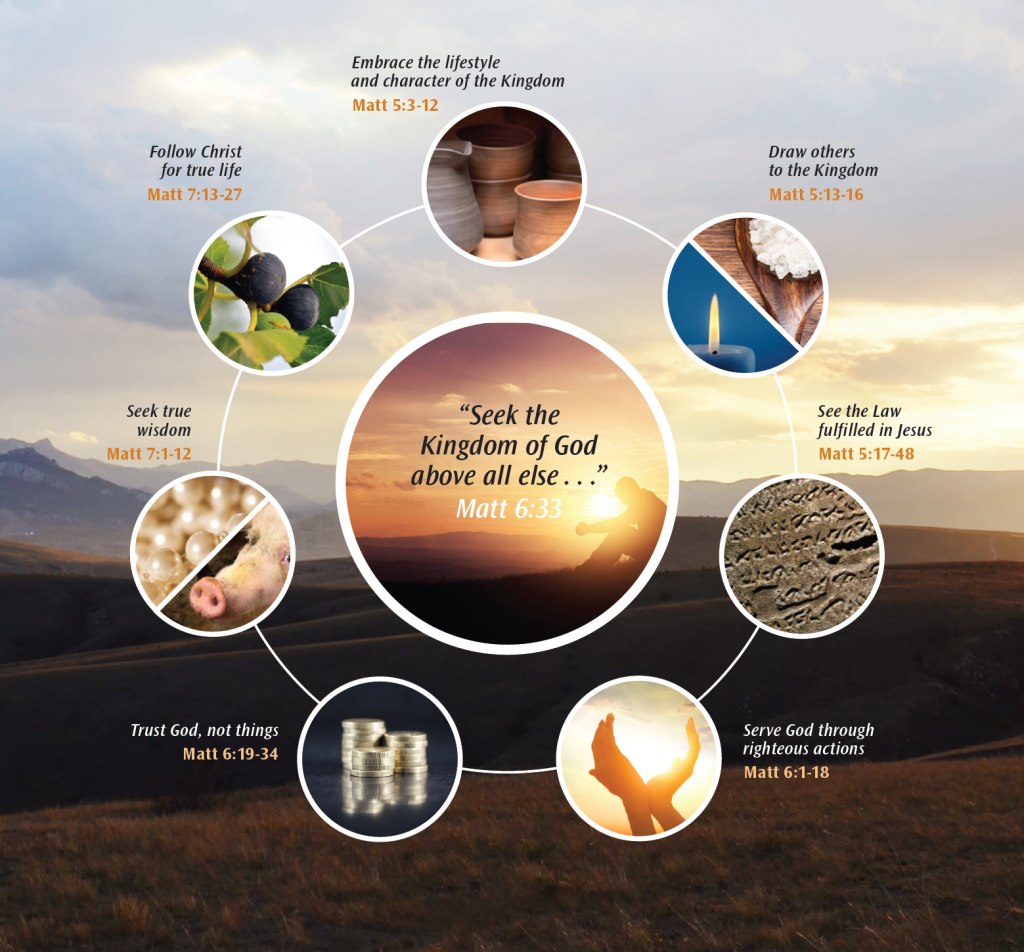April 29, 2020
Citizenship in the Kingdom
Citizenship in the Kingdom

From the Illustrated Study Bible
Matthew presents Jesus as a teacher unlike any other, and the Sermon on the Mount is his longest and most famous sermon. More than simply a collection of Jesus’ ethical or moral teachings, it is a manifesto of citizenship in the Kingdom of Heaven (see 4:17, 23).
First-century Jews were looking for a king like David or Judas Maccabeus who would overthrow their oppressors. Jesus’ vision of the Kingdom of God was radically different from these expectations (7:21). Jesus framed the Kingdom of Heaven primarily in terms of (1) upward relationship with God, (2) inward change of heart, and (3) outward relationships with other people. This new message of the Kingdom was compelling to Jesus’ hearers (7:28-29).
The tendency is to make hard distinctions between these areas, but all three are always present. For example, Jesus’ instruction to humility (5:5) at first seems inward, but is about attitude toward God and others. The command not to resist an evil person (5:39) seems outward, but often requires active faith in God and internal fortitude. Jesus’ instruction on prayer (6:5-15) is primarily about our relationship with God, but prayer requires an internal recognition of need, and is often about relationships with others.
Citizenship in the Kingdom of Heaven has a central requirement: Those who wish to follow Jesus and enter the Kingdom of Heaven must stop living self-centered lives and instead live God-centered ones. Those who try to achieve righteousness on their own still have self at the center and are still living in darkness. The call of Jesus is to live a life of true righteousness – the righteousness of God himself (5:20, 48). This is not a righteousness that can be attained. Instead, Jesus gives it to those who follow him.









